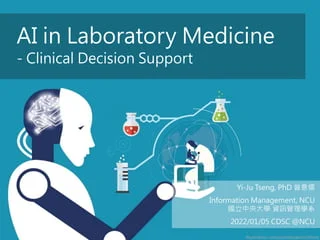Table of Contents
The healthcare sector is undergoing a significant transformation, transitioning from traditional methods to incorporating advanced AI technologies, transforming diagnostics, treatment, and patient care.
The Limitations of Traditional Instruments
Healthcare has long relied on traditional instruments like stethoscopes, thermometers, and X-ray machines, but these have limitations. Stethoscopes rely on clinician skill, thermometers face human error, and X-ray machines expose patients to ionizing radiation. These limitations highlight the need for more advanced, consistent, and accurate diagnostic tools, prompting the healthcare industry to focus on technological advancements.
The Advent of Digital Health Technologies
Digital health technologies are revolutionizing medicine by providing personalized care and enhancing precision. Electronic Health Records (EHRs) help healthcare providers maintain comprehensive patient records, enabling informed decision-making. Wearable devices and mobile health apps provide real-time health metrics, reducing clinic visits. Telemedicine platforms expand access to services, especially in remote areas. This digital transformation focuses on proactive healthcare, promoting prevention and early intervention, leading to better patient outcomes and reduced costs.
AI and Machine Learning: Game Changers in Diagnosis
Artificial Intelligence (AI) and Machine Learning (ML) are the latest powerhouses transforming the landscape of medical diagnostics. AI algorithms have shown remarkable capabilities in interpreting complex medical data, including imaging and patient history, with accuracy often surpassing human capability. For instance, AI tools in radiology can analyze X-rays, CT scans, and MRIs to detect anomalies such as tumors, fractures, and infections at an early stage. These systems not only enhance diagnostic speed but also minimize errors.
Furthermore, AI-powered diagnostic tools are revolutionizing pathology. Machine learning models trained on thousands of histopathological images can identify cancerous cells with remarkable precision, often detecting nuances that even skilled pathologists might miss. This technology is also being employed in genomics to identify genetic mutations that could lead to hereditary diseases. AI’s ability to process and analyze vast amounts of data in real-time not only accelerates diagnosis but also allows for personalized treatment plans, tailored to the specific genetic makeup of each patient.
In the realm of predictive analytics, machine learning models analyze patient data to predict health outcomes and potential complications. This helps in creating proactive care plans that can prevent the onset of diseases or mitigate their impact. For example, algorithms can predict which patients are at higher risk for conditions like diabetes or heart disease, allowing for timely interventions. AI and machine learning are thus turning the art of diagnosis into a precise science, reducing diagnostic ambiguity and improving patient outcomes.
Robotic Assistance in Surgery and Treatment
Robotics are revolutionizing medical technology, enhancing precision, dexterity, and control in surgeries. They enable minimally invasive procedures, reducing recovery times and complications. Robotic systems are also used in radiation therapy, orthopedics, and rehabilitation, improving patient care. For example, exoskeletons help individuals with mobility impairments and elderly care with daily living activities. These advancements demonstrate the transformative impact of robotics in delivering safer, more effective, and patient-centered care.
Future Prospects and Challenges
As we look to the future, the potential for AI-powered innovations in healthcare seems limitless. From personalized medicine driven by genetic research to AI-assisted surgeries and beyond, the possibilities are enormous. However, this technological evolution comes with its own set of challenges. One primary concern is data privacy and security. The vast amounts of sensitive patient data being generated and analyzed raise concerns about data breaches and unauthorized access. Ensuring robust cybersecurity measures is crucial for maintaining patient trust and safeguarding healthcare data.
Another significant challenge is the integration of AI and other advanced technologies into existing healthcare systems. Many healthcare facilities still operate on legacy systems that are incompatible with modern technologies. The shift requires substantial investment in infrastructure, training, and a cultural shift among healthcare professionals. Resistance to change, fear of job displacement, and ethical concerns about AI decision-making in critical medical situations are obstacles that need to be addressed.
Moreover, regulatory frameworks need to evolve to keep pace with technological advancements. Ensuring that AI algorithms are transparent, explainable, and free from bias is essential for their ethical deployment. The future of healthcare will depend on a balanced approach that embraces technological innovation while addressing these challenges. With the right investments, policies, and a patient-centric approach, AI-powered innovations have the potential to transform healthcare in unprecedented ways, making it more efficient, effective, and equitable.
